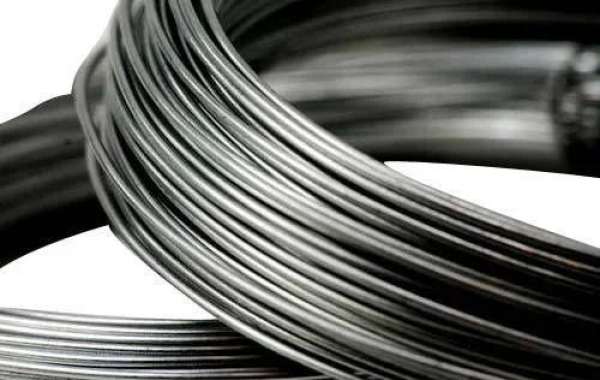Introduction
In the dynamic world of technology and engineering, upgrading from standard wiring solutions to hhb wires represents a significant leap forward. High-High-Brightness (HHB) Wires are designed to address the limitations of ordinary wires, offering numerous benefits that transform both performance and reliability. This article explores the profound advantages of making this upgrade, highlighting the enhancements in efficiency, durability, and overall system performance.
Understanding HHB Wires
What Are HHB Wires?
HHB Wires are a sophisticated advancement in wire technology, built to offer superior performance compared to traditional wiring. Characterized by their high conductivity, enhanced strength, and exceptional durability, HHB Wires are engineered for applications that demand peak performance and reliability.
High Conductivity: HHB Wires feature advanced conductive materials that minimize resistance and energy loss.
Robust Construction: These wires are designed to withstand harsh environmental conditions and mechanical stresses.
Comparing Ordinary Wires with HHB Wires
Ordinary wires, while functional for basic applications, often fall short in demanding environments. HHB Wires, on the other hand, are optimized for high-performance scenarios.
Conductivity: Ordinary wires may suffer from higher resistance, leading to energy loss and inefficiency.
Durability: Standard wires might degrade faster under extreme conditions, affecting their longevity and performance.
The Transformative Benefits of HHB Wires
Enhanced Electrical Performance
HHB Wires offer exceptional electrical conductivity compared to their ordinary counterparts. This enhancement results in:
Reduced Energy Loss: Higher conductivity means less energy is wasted as heat, leading to more efficient systems.
Better Signal Integrity: In data transmission applications, improved conductivity ensures clearer and more reliable signal transfer.
Higher Current Handling Capacity
HHB Wires are designed to handle higher currents without compromising performance. This capability is crucial for:
Power Distribution: Efficiently managing higher loads in power distribution systems.
High-Power Applications: Supporting applications that require significant electrical power, such as industrial machinery and high-performance computing.
Superior Durability and Reliability
HHB Wires are engineered to resist a range of environmental stresses, including:
Extreme Temperatures: They perform reliably across a wide temperature range, from scorching heat to freezing cold.
Corrosion and Moisture: Enhanced protective coatings and materials prevent degradation due to moisture and corrosive elements.
Mechanical Strength
HHB Wires offer enhanced mechanical strength, making them suitable for:
Rugged Environments: Their robustness ensures they can withstand physical impacts and vibrations without damage.
Long-Term Reliability: Reduced wear and tear translate into longer operational lifespans, minimizing maintenance needs.
Improved Safety and Efficiency
The advanced design of HHB Wires contributes to improved safety in electrical systems:
Reduced Fire Risk: Better heat dissipation lowers the risk of overheating and potential fire hazards.
Lower Electromagnetic Interference (EMI): Their construction reduces EMI, which can otherwise affect sensitive electronic equipment.
Increased System Efficiency
The efficiency gains from using HHB Wires extend to:
Lower Energy Costs: Reduced energy loss translates to lower operational costs over time.
Optimized Performance: Improved conductivity and reliability enhance overall system performance and efficiency.
Applications of HHB Wires
Industrial and Manufacturing
In industrial settings, HHB Wires are invaluable for:
Heavy Machinery: Their durability ensures reliable operation of heavy-duty equipment and machinery.
Automation Systems: Enhanced performance supports sophisticated automation and control systems.
Telecommunications and Data Centers
HHB Wires play a critical role in:
Data Transmission: Their high conductivity and low signal loss are essential for high-speed data networks.
Telecommunications: Reliable signal integrity supports uninterrupted communication services.
Automotive and Aerospace
In the automotive and aerospace sectors, HHB Wires are used for:
Electric Vehicles (EVs): Handling high power requirements and ensuring efficient energy transfer.
Aerospace Applications: Their strength and reliability meet the demanding requirements of aerospace systems.
The Future of HHB Wires
Technological Innovations
Future advancements in HHB Wire technology are set to further expand their capabilities:
Advanced Materials: Development of new materials and coatings will enhance their performance and durability.
Customization: Increased customization options will tailor HHB Wires to specific industry needs and applications.
Sustainability and Environmental Impact
HHB Wires are expected to align with sustainability goals:
Eco-Friendly Materials: Future iterations will incorporate more sustainable materials and manufacturing processes.
Energy Efficiency: Continued focus on improving energy efficiency will support global efforts to reduce environmental impact.
Conclusion
Upgrading from ordinary wires to hhb wires offers substantial benefits, including enhanced electrical performance, superior durability, and improved safety. As technology continues to advance, HHB Wires stand at the forefront, providing transformative solutions across various industries.




